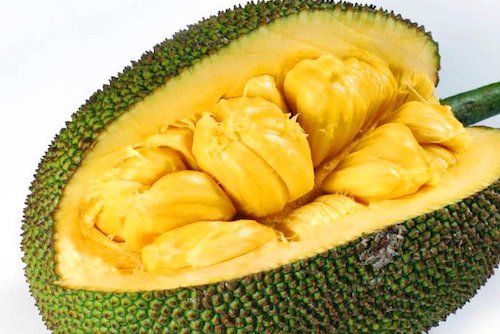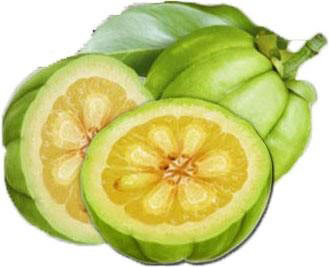The fenugreek plant, scientifically known as Trigonella foenum-graecum, is an annual herb native to the Mediterranean region. Morphologically, it possesses light green leaves, similar in shape to clover, and produces slender, beaked pods that house the plant’s distinctive yellow-brown seeds. These seeds are the most commonly used part of the plant in both culinary and medicinal applications. In India, it is popularly known as ‘methi’ and holds significance in various dishes and remedies.
Fenugreek is known by various names across different Indian languages. Here are some of them:
- 1. Hindi: Methi (मेथी)
- 2. Bengali: Methi (মেথি)
- 3. Gujarati: Methi (મેથી)
- 4. Kannada: Menthya (ಮೆಂತ್ಯ)
- 5. Malayalam: Uluva (ഉലുവ)
- 6. Marathi: Methi (मेथी)
- 7. Odia: Methi (ମେଥୀ)
- 8. Punjabi: Methi (ਮੇਥੀ)
- 9. Tamil: Vendhayam (வெந்தயம்)
- 10. Telugu: Menthulu (మెంతులు)
These names often refer to both the fenugreek plant as well as its seeds, which are commonly used in various regional cuisines.
TABLE OF CONTENT
Methi or Fenugreek in ayurveda
Health Benefits of fenugreek or methi
May help in Normalising Blood Cholesterol
Good Vegetable for Fatty Liver
Methi or Fenugreek in Ayurveda
In Ayurveda, fenugreek is commonly known as “Methika” or peeta beeja (as its seeds are yellow in colour). Its medicinal properties are explained as follows

Methika (fenugreek) has specific attributes that influence the doshas:
Ayurvedic Properties of Methi
1. Rasa (Taste): Methika is primarily bitter (tikta) and somewhat astringent (kashaya) in taste.
2. Virya (Energy): Its energy is considered to be heating (ushna), which implies that it can increase the heat in the body.
3. Vipaka (Post-digestive effect): After digestion, it has a pungent (katu) effect.
4.Guna ( properties): It is light to digest ( laghu) and improves moistness of tissues (snigdha)
Effect of Fenugreek on Doshas
Vata Dosha: The warming quality of fenugreek can be balancing for Vata, which is cold in nature. Also, its unctuousness can counteract the dryness associated with Vata.
Pitta Dosha: Fenugreek’s bitter taste can balance Pitta. However, its heating property may exacerbate high Pitta conditions if consumed in excess. Therefore, those with a predominant Pitta constitution or Pitta imbalances should consume fenugreek with caution.
Kapha Dosha: Its heating and drying properties can be beneficial for balancing Kapha dosha, which is inherently cold and moist. Fenugreek can help reduce excess mucus and water retention, common in Kapha imbalances.
Health Benefits of fenugreek or methi
From a chemical composition perspective, fenugreek seeds are a treasure trove of bioactive compounds. They are rich in soluble fiber, proteins, and a range of phytochemicals. Among the many compounds, the presence of saponins and alkaloids, especially trigonelline, is noteworthy. Moreover, fenugreek contains a unique compound called 4-hydroxyisoleucine, which is believed to have potential insulin-stimulating properties. Additionally, the seeds are a source of steroidal saponins and flavonoids, which are believed to impart many of the plant’s therapeutic benefits. This rich chemical composition makes fenugreek a subject of interest in both the culinary and scientific worlds.
May help with diabetes
Its bitter taste, vata balancing and kapha reducing properties help to reduce the severity of madhumeha or diabetes.
Among many health benefits of fenugreek, its role in aiding diabetes management has been particularly significant. Diabetes, a chronic condition characterized by elevated blood glucose levels, requires consistent monitoring and control. Naturally occurring compounds in fenugreek seeds have shown promise in assisting with this.
A predominant compound in fenugreek seeds is 4-hydroxyisoleucine. This amino acid has shown potential in stimulating insulin secretion, thereby assisting in the regulation of blood sugar levels. This is crucial for individuals with Type 2 diabetes, where insulin resistance is a common concern. The soluble fiber galactomannan, another component found in fenugreek, can slow down the absorption of sugars in the stomach, leading to a gradual rise in blood sugar rather than a sudden spike. This property helps in maintaining steady glucose levels, reducing the risk of postprandial hyperglycemia (elevated blood sugar after meals).
Furthermore, fenugreek seeds possess an abundance of antioxidants. Antioxidants play an essential role in mitigating oxidative stress, which is often elevated in individuals with diabetes. Oxidative stress is responsible for exacerbating many diabetes-related complications, and by reducing it, fenugreek may offer a protective effect.
A study published in the journal “Nutrition Research” in 2009 demonstrated that daily intake of fenugreek seeds soaked in hot water could significantly reduce fasting blood sugar levels in Type 2 diabetes patients. This research, among others, emphasizes the potential of fenugreek as a natural adjunct in diabetes management.
https://www.ncbi.nlm.nih.gov/pmc/articles/PMC4591578/
May Help to Reduce Blood Cholesterol
The vata balancing, kapha reducing and pitta increasing properties of this spice help to reduce medho dhatu or lipid component of body, which in turn helps to reduce cholesterol.
Among the myriad advantages of methi, its role in controlling cholesterol levels is particularly noteworthy.
Cholesterol is essential for the body, playing crucial roles such as aiding in the synthesis of certain hormones and providing structural support to cellular membranes. However, an imbalance, particularly an elevation in the levels of low-density lipoprotein (LDL) cholesterol, can lead to several cardiovascular diseases. Research has demonstrated that fenugreek seeds possess the ability to lower LDL cholesterol, primarily due to their high content of soluble fiber. This soluble fiber, once ingested, forms a gel-like substance in the stomach. This substance binds to cholesterol particles, particularly LDL, and helps eliminate them from the body through the digestive tract. By removing excess cholesterol, fenugreek helps reduce the overall cholesterol levels, minimizing the risk of plaque formation in the arteries.
Another significant component of fenugreek is saponins. These are a group of compounds known to interfere with the re-absorption of cholesterol and bile acids in the intestine. When these compounds are excreted, the liver uses circulating cholesterol to produce more bile acids, thereby reducing the level of cholesterol in the blood.
In a study published in the journal “Phytotherapy Research” (2009), researchers found that the daily consumption of fenugreek seeds reduced cholesterol levels in patients with type 2 diabetes, emphasizing its potential in cholesterol management.
In summary, the rich composition of fenugreek, particularly its soluble fiber and saponins, makes it a valuable natural remedy for maintaining optimal cholesterol levels.
https://pubmed.ncbi.nlm.nih.gov/32385866/
Relieves Constipation
One of the significant health benefits of methi is its ability to assist in relieving constipation. Constipation is a common digestive problem wherein individuals find it challenging to pass stools or experience infrequent bowel movements. This condition can lead to discomfort, bloating, and even pain.
The seeds of the fenugreek plant play a crucial role in aiding digestion and promoting regular bowel movements. They are rich in soluble fibers, especially mucilage, which is a type of sticky fiber. When consumed, these fibers absorb water and expand, adding bulk to the stool. This increased bulk stimulates the intestines and encourages the movement of waste through the digestive tract, thus providing relief from constipation.
Additionally, the soluble fiber in fenugreek seeds is known to soften the stool. When the stool is soft, it moves more easily through the colon, reducing the strain and discomfort associated with hard or lumpy stools. Moreover, fenugreek seeds can also help in maintaining a healthy balance of digestive bacteria. A balanced gut microbiome can further facilitate regular bowel movements and aid in the prevention of constipation.
Apart from the direct impact on bowel regularity, fenugreek, or methi, seeds have anti-inflammatory properties. These properties can soothe an irritated gastrointestinal tract, making the process of digestion more comfortable and less painful for individuals.
In conclusion, fenugreek offers a natural, gentle, and effective solution for those suffering from constipation. By incorporating it into one’s diet or as a supplement, individuals can harness its benefits for smoother digestive functioning.
https://www.ncbi.nlm.nih.gov/pmc/articles/PMC9005292/
May Aid in Weight loss
Fenugreek, offers an array of health benefits, one of which is aiding in weight loss. Understanding the mechanisms by which this herb contributes to shedding those extra pounds can shed light on its therapeutic potential.
Firstly, fenugreek seeds are a rich source of soluble fiber. When ingested, this fiber forms a gel-like substance in the stomach. This substance slows down digestion and sugar absorption, which can lead to a feeling of fullness, reducing overall food intake. It acts as a natural appetite suppressant, making individuals consume fewer calories, which is essential for weight loss.
Secondly, the unique amino acid present in fenugreek, 4-hydroxyisoleucine, has shown potential in increasing the body’s insulin sensitivity. Better insulin control means fewer insulin spikes, which are often linked to fat storage in the body. By regulating insulin, fenugreek can play a part in ensuring that fewer sugars are stored as fat, supporting weight management.
Additionally, the thermogenic effect of fenugreek seeds can boost metabolism. An increased metabolic rate means the body burns calories faster, creating a conducive environment for fat burning.
Moreover, a balanced blood sugar level, which methi can support, is vital for weight loss. Fluctuations in blood sugar can cause sudden hunger pangs and cravings, leading to overeating. By stabilizing blood sugar, fenugreek helps keep these sudden urges at bay.
Incorporating fenugreek into one’s diet is relatively easy. Whether taken as a supplement or sprinkled onto dishes, it can be a natural and effective way to assist in weight loss efforts.
https://www.ncbi.nlm.nih.gov/pmc/articles/PMC4020548/
Best Diet for PCOS
Polycystic Ovary Syndrome (PCOS) is a prevalent endocrine disorder among women of reproductive age. Characterized by an array of symptoms, including hormonal imbalances, menstrual irregularities, and insulin resistance, managing PCOS often requires a multidimensional approach. Among the myriad of natural remedies explored, fenugreek (locally known in India as methi) has emerged as a potential ally against this condition.
Research indicates that fenugreek seeds have properties that can alleviate some of the symptoms associated with PCOS or PCOD. One of the core issues in many PCOS patients is insulin resistance, a condition where the body’s cells don’t respond to insulin effectively, leading to elevated blood sugar levels. Fenugreek has shown promise in improving insulin sensitivity. The presence of a unique amino acid, 4-hydroxyisoleucine, plays a role in this, aiding in the secretion of insulin and consequently, the management of blood glucose levels.
Another concern with PCOS is dyslipidemia, or abnormal lipid levels. Regular intake of fenugreek has demonstrated a lipid-lowering effect, helping to balance cholesterol and triglyceride levels. This is crucial because a balanced lipid profile can indirectly support hormonal equilibrium, a critical aspect of managing PCOS.
Furthermore, fenugreek is rich in phytoestrogens – compounds that mimic the action of estrogen in the body. This is significant as many PCOS patients struggle with hormonal imbalances, particularly elevated androgens. By gently modulating the hormonal milieu, fenugreek can potentially help restore menstrual regularity in some women.
https://www.ncbi.nlm.nih.gov/pmc/articles/PMC3813238/
Good for Fatty Liver
Fatty liver, clinically referred to as non-alcoholic fatty liver disease (NAFLD), is a condition characterized by the accumulation of excess fat in liver cells. Lifestyle factors, such as poor diet and sedentary behavior, often contribute to its onset. As the global incidence of NAFLD rises, interest in natural remedies, including fenugreek, has grown.
Studies have explored the potential benefits of fenugreek seeds in combatting fatty liver. One of the primary active components in these seeds is saponins, which are known for their antioxidant properties. Oxidative stress is a significant contributor to liver damage in NAFLD patients. By neutralizing free radicals, the antioxidants in fenugreek can help reduce inflammation and cellular damage in the liver. Additionally, fenugreek seeds are rich in amino acids that might promote liver health. The presence of 4-hydroxyisoleucine, in particular, has shown promise in improving glucose metabolism, thus potentially reducing liver fat content.
Furthermore, fenugreek, or methi, is a good source of dietary fiber. Fiber plays a pivotal role in improving digestion and regulating the absorption of fats and sugars. Enhanced digestion can subsequently prevent fat accumulation in the liver. Its properties like improving digestion (paachana), metabolism and appetite (deepana) help to reduce liver load. This spice also eases constipation (anulomana) and abdomen pain (shula prashamana). It is considered as a liver detox.
https://pubmed.ncbi.nlm.nih.gov/25670619/
Improves Skin Health
Ayurveda scholars opine that this spice helps to reduce skin inflammation (shothahara) and pain (vedanahara).
Fenugreek, revered for its myriad health benefits, has carved a significant niche in the realm of skin health. For centuries, this versatile herb, known as ‘methi’ in certain cultures, has been a staple in traditional remedies for a variety of skin concerns.
One of the key attributes of fenugreek in promoting skin health lies in its rich composition of antioxidants. These antioxidants combat free radicals, responsible for skin aging, thus potentially delaying the onset of wrinkles and fine lines. By providing a protective shield against environmental stressors, fenugreek helps maintain skin elasticity and vitality.
Moreover, the presence of mucilage, a viscous substance in fenugreek seeds, offers moisturizing properties. When applied topically, this mucilage can soothe dry and inflamed skin, providing a hydration boost and a smoother complexion. In various traditional practices, fenugreek seed paste has been utilized as a home remedy for conditions like eczema and burns, alleviating discomfort and redness.
Another remarkable feature is its anti-inflammatory properties. The seeds, when used as a paste or in masks, can reduce skin redness and swelling. This makes fenugreek beneficial for individuals suffering from acne, as it not only reduces inflammation but also possesses mild antibacterial properties that help in acne prevention.
Lastly, the presence of niacin or Vitamin B3 in fenugreek promotes blood circulation in the skin, which aids in skin cell regeneration and detoxification. Regular use can result in a radiant and healthier complexion.
In summary, the time-honored methi not only graces our dishes with flavors but also brings along an array of skin health benefits. Whether used in masks, pastes, or infused oils, fenugreek has undeniably proven its mettle in skincare.
https://www.ncbi.nlm.nih.gov/pmc/articles/PMC8879298/
Takes Care of Hair Health
Fenugreek, boasts a myriad of health benefits, and its influence on hair health stands out prominently. The seeds of this plant have been traditionally used in various treatments and hair care routines, and recent scientific explorations have provided insights into its efficacy.
One of the primary benefits of fenugreek for hair is its ability to strengthen the hair shaft and prevent breakage. Rich in folic acid, vitamins A, K, and C, and minerals such as potassium, calcium, and iron, it nourishes the hair, ensuring a robust and lustrous mane. These nutrients are vital for follicular health, ensuring that hair grows out strong from its very root.
Furthermore, methi seeds have been known to possess properties that combat dandruff and other scalp ailments. They are rich in lecithin, which hydrates the scalp, reducing dryness and flakiness. When applied as a mask, a paste made from fenugreek seeds can moisturize and bring relief to an itchy scalp.
Another remarkable benefit is its potential to stimulate hair growth and reduce hair thinning. Studies have indicated that the seeds might promote the expansion of hair follicles, an essential factor for increased hair growth. This can be especially beneficial for individuals experiencing hair thinning or premature balding.
Lastly, fenugreek seeds have natural oils that impart shine to the hair. Regular use can lead to a noticeable increase in hair luster and vibrancy.
In conclusion, the ancient wisdom surrounding methi’s benefits for hair finds grounding in modern science. Integrating fenugreek into one’s hair care routine can be a game-changer for many seeking healthier, shinier, and stronger locks.
Author: Dr. Savitha Suri Consultant Ayurvedic Physician
Consult Dr.Savitha Suri
Call us at +91 9945995660 / +91 9448433911
WhatsApp + 91 6360108663/







Pingback: Ayurvedic Treatment for Diabetes
Pingback: Shilajit Uses for PCOS, Erectile Dysfunction and Weight Loss
Pingback: Ayurveda Regimen for Winter Depression
Pingback: 6 Important Ayurvedic Treatments for Obesity or Weight Loss
Pingback: Ayurvedic Weight Loss Herbs
Pingback: Ayurvedic Treatment for PCOD or PCOS
Pingback: Ayurveda Vata Dosha - Body Type and Balancing Tips